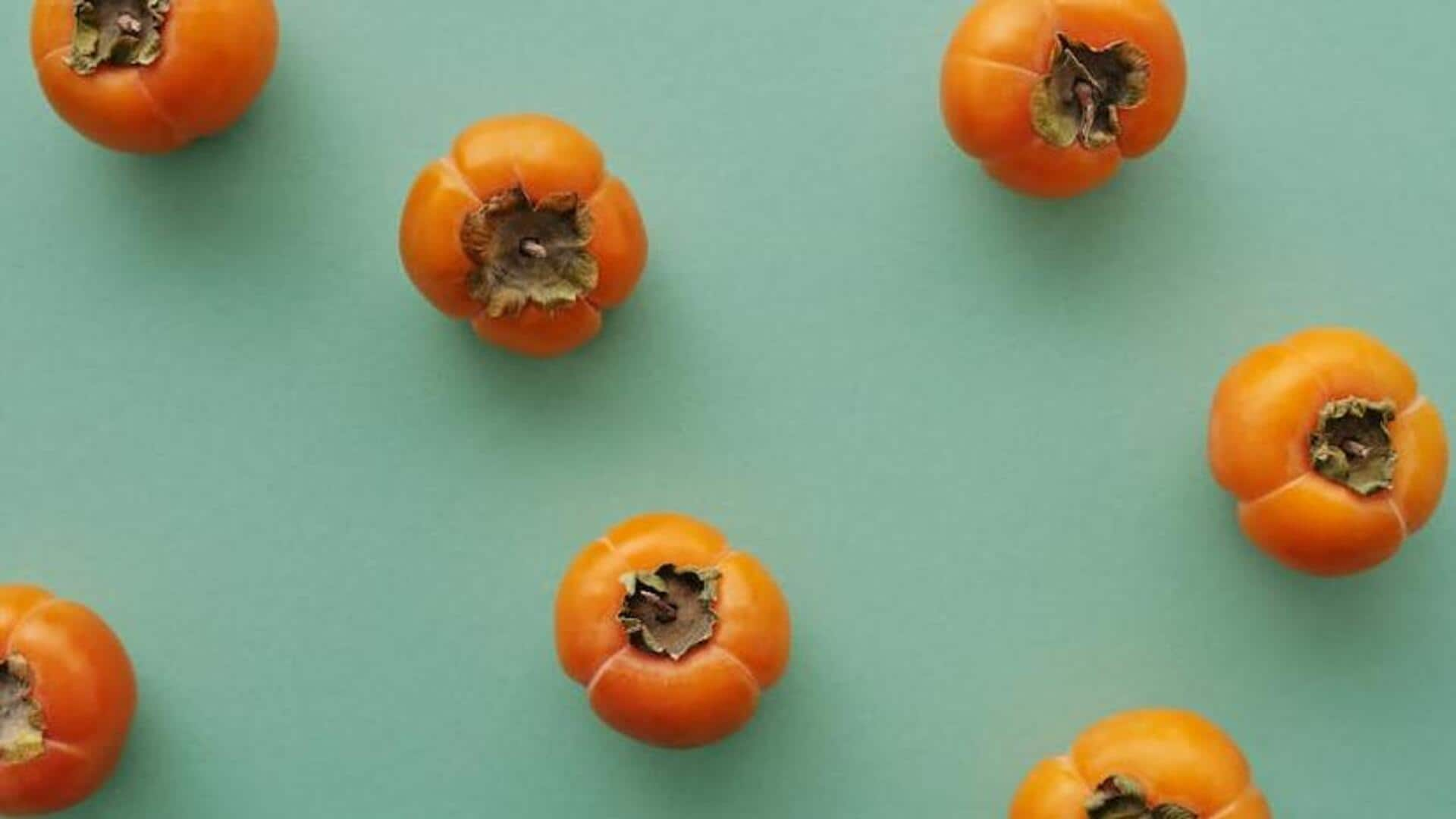
Discover the health benefits of persimmons
What's the story
Persimmons are the unsung heroes of the fruit world, brimming with a nutritional powerhouse that often goes unnoticed. This article delves into the health benefits and culinary versatility of persimmons, with a particular emphasis on their high fiber content. Boasting a sweet flavor and a texture that ranges from crisp to pudding-like, persimmons are a delight for the senses.
Nutrition
Nutritional profile of persimmons
A single medium-sized persimmon packs a powerful punch with six grams of fiber, fulfilling 24% of your daily requirement. Plus, it's loaded with vitamins A and C, offering 55% and 21% of the daily values, respectively. These vibrant fruits are the perfect pick for strengthening immunity and enhancing eye health.
Culinary
Culinary uses across cultures
Persimmons can be used in many ways in the kitchen. You can enjoy them fresh, dried, or even cooked. In East Asian cooking, they're a popular choice for desserts and salads, or dried into a sweet treat on their own. In Mediterranean recipes, they bring a special touch to stews and sauces. And, their natural sweetness makes them a healthy way to replace sugar in baking.
Health
Health benefits beyond fiber
Persimmons aren't just a fiber powerhouse; they pack a serious nutritional punch in other areas too. These fruits are loaded with antioxidants, including flavonoids and tannins, which help fight inflammation and promote heart health. Plus, at only around 118 calories for a medium-sized fruit, persimmons are a great option for weight management. Their low calorie content and high nutritional value make them the perfect guilt-free snack for health-conscious individuals.
Gardening
Growing your own persimmon tree
If you love gardening, you will find growing a persimmon tree quite fulfilling. It needs well-drained soil with a pH of six to 7.5 and a minimum of eight hours of sunlight every day. Although it requires patience (three to four years after planting for the tree to bear fruit), imagine eating fresh persimmons that you grew yourself!
Storage
Tips for selecting and storing persimmons
When choosing persimmons at the store, pick bright orange-red fruits with glossy skin. Avoid those with bruises or blemishes. If your persimmons are unripe, you can leave them at room temperature until they soften. Once ripe, it's best to refrigerate them - it will keep them good for up to two weeks.